News
Popular searches: Influenza, Childhood cancer, Endometriosis, Inflammation
-
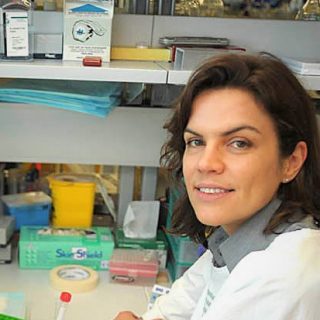
Sleep patterns may contribute to poor heart health
While most of us know a good night’s sleep is important for our health, a new study has pinpointed why it also could be crucial for maintaining a healthy heart. A study by Dr Morag Young, and students Elizabeth Fletcher and Monica Kanki, shows how changes in our heart’s circadian clock, as might occur with… Read more
-
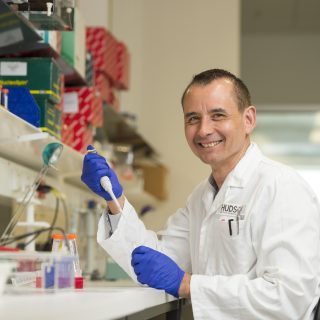
One-two punch could knock out rare ovarian cancer
A double-barrelled, non-surgical method to treat a rare type of ovarian cancer may provide hope for many patients.… Read more
-
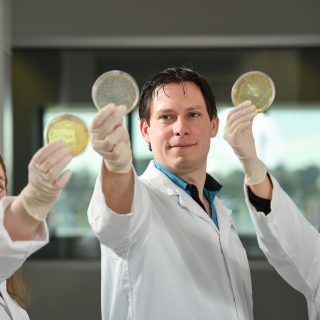
More than 100 new gut bacteria discovered in human microbiome
Scientists working on the gut microbiome have discovered and isolated more than 100 completely new species of bacteria from healthy people’s intestines.… Read more
-
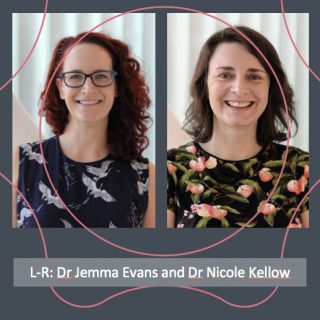
Collaborative grants awarded after speed-networking
Two grants of $10,000 each were awarded to Dr Jemma Evans and Dr Nicole Kellow (SCS; Nutrition, Dietetics and Food); and Dr Courtney McDonald and Dr Shu Wen Wen (SCS; Centre for Inflammatory Diseases). Organised by Hudson Institute and School of Clinical Sciences ECR committees, the initiative encourages early career researchers from across the MHTP… Read more
-

Prestigious grant for cardiovascular research
Dr Jun Yang has been awarded a prestigious $100,000 research grant from the Rebecca L Cooper Medical Research Foundation to find out more about how aldosterone might cause cardiovascular disease. Aldosterone is an important hormone in our body, but if produced in excess it can cause high blood pressure, stroke and heart attack. While it’s… Read more
-
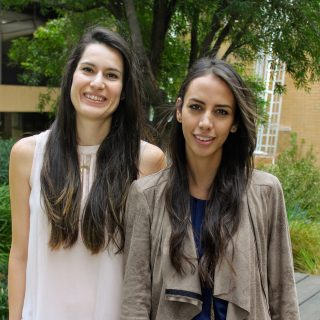
Innovative clinical guide to help babies born with DSD
Boy or girl? Sometimes the answer is not straightforward.… Read more
-
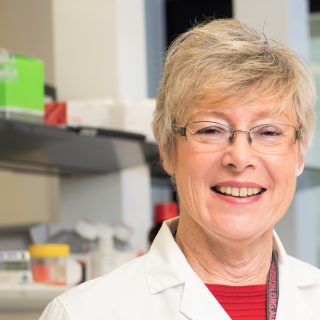
Research uncovers clues to cause of endometriosis
Scientists are one step closer to understanding the cause of the debilitating condition endometriosis, following the completion of a study into cells found in the lining of the womb called the endometrium. In the study, published in the journal Human Reproduction, Professor Caroline Gargett and her team sought to determine whether regenerative cells called endometrial… Read more
-

Childhood Cancer Research Symposium: Cutting-edge science advancing childhood cancer treatment
More than 150 leading clinicians and scientists heard from national and international experts in childhood cancer at Hudson Institute of Medical Research on Wednesday, 13 February at a highly anticipated international symposium. The symposium was made possible through the generous support of our premium partner, the Children’s Cancer Foundation, along with the Isabella and Marcus… Read more
-
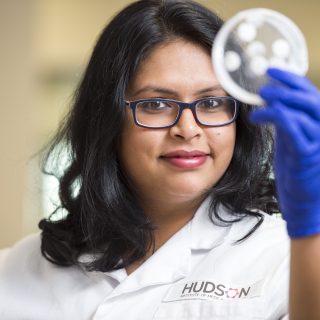
Natural mesh provides hope for pelvic organ prolapse
A safer and more effective treatment for women with pelvic organ prolapse (POP) may be on the horizon, thanks to a new technique that uses a woman’s own stem cells to boost the effectiveness of a degradable mesh. A study published in Biomacromolecules, led by Dr Shayanti Mukherjee, shows how a degradable mesh, made from… Read more
-
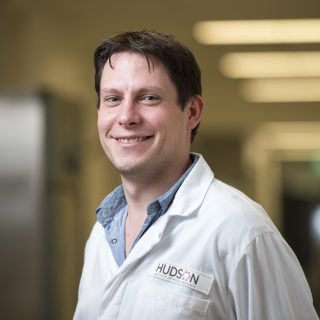
Almost 2000 unknown bacteria discovered in the human gut
Leading microbiome expert, Dr Sam Forster, in collaboration with researchers at EMBL’s European Bioinformatics Institute and the Wellcome Sanger Institute (UK) have identified almost 2000 bacterial species living in the human gut.… Read more
